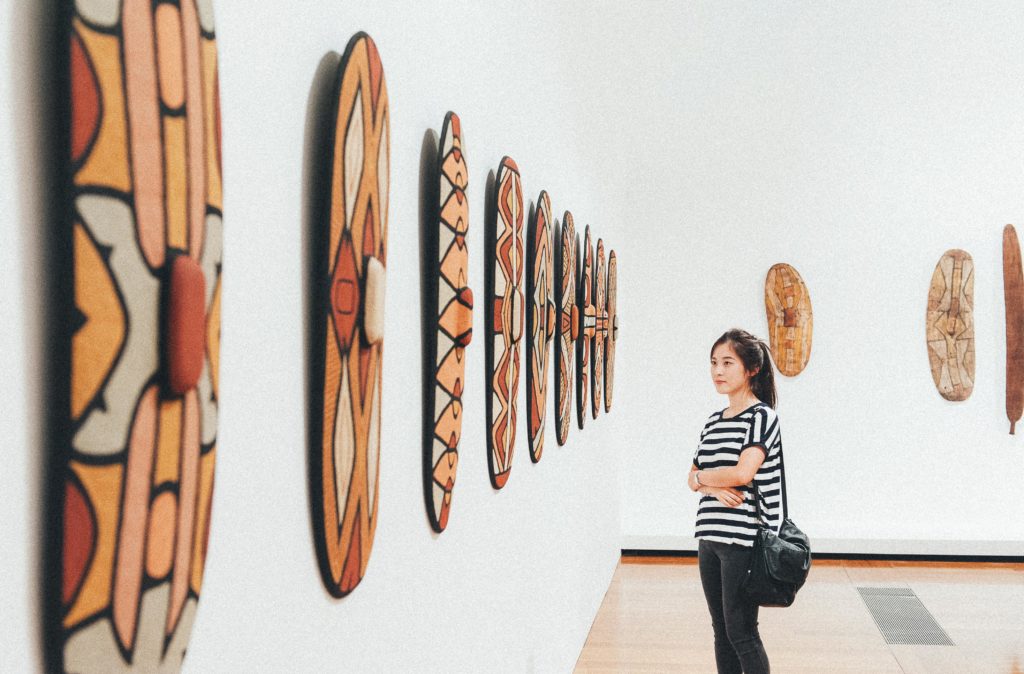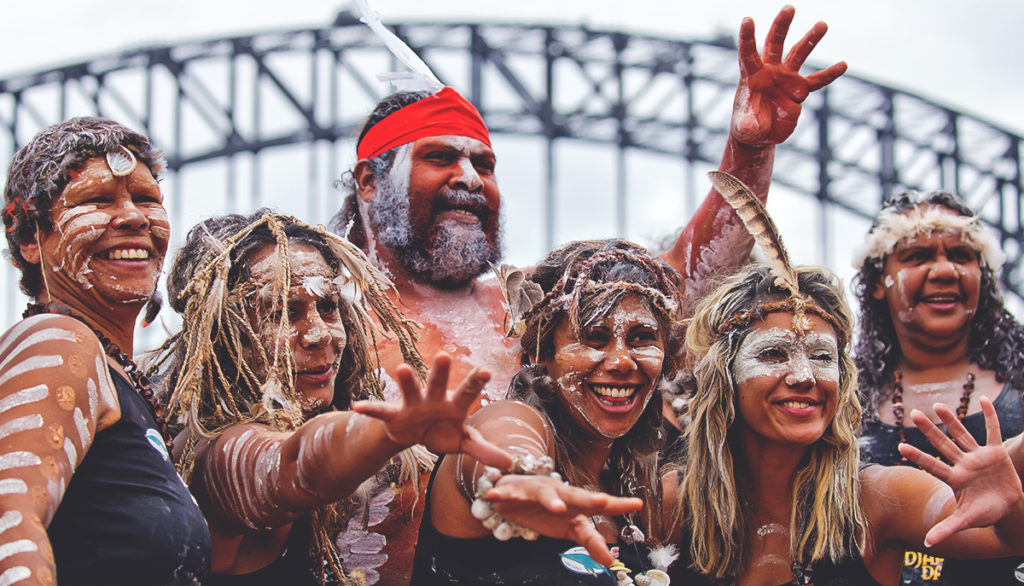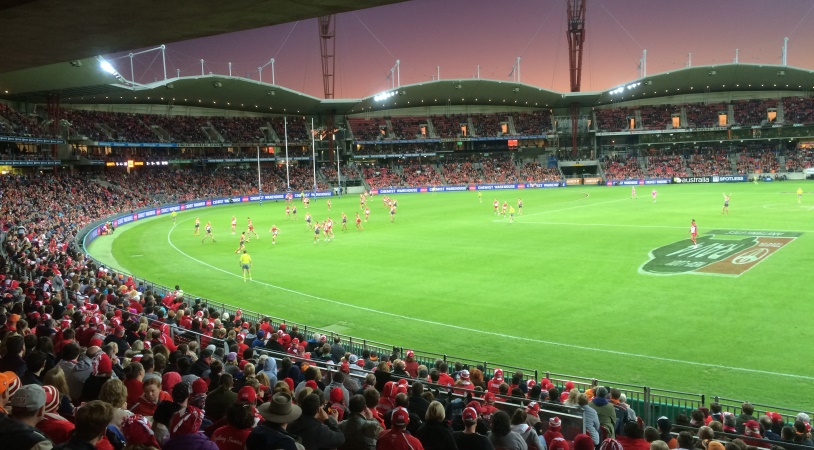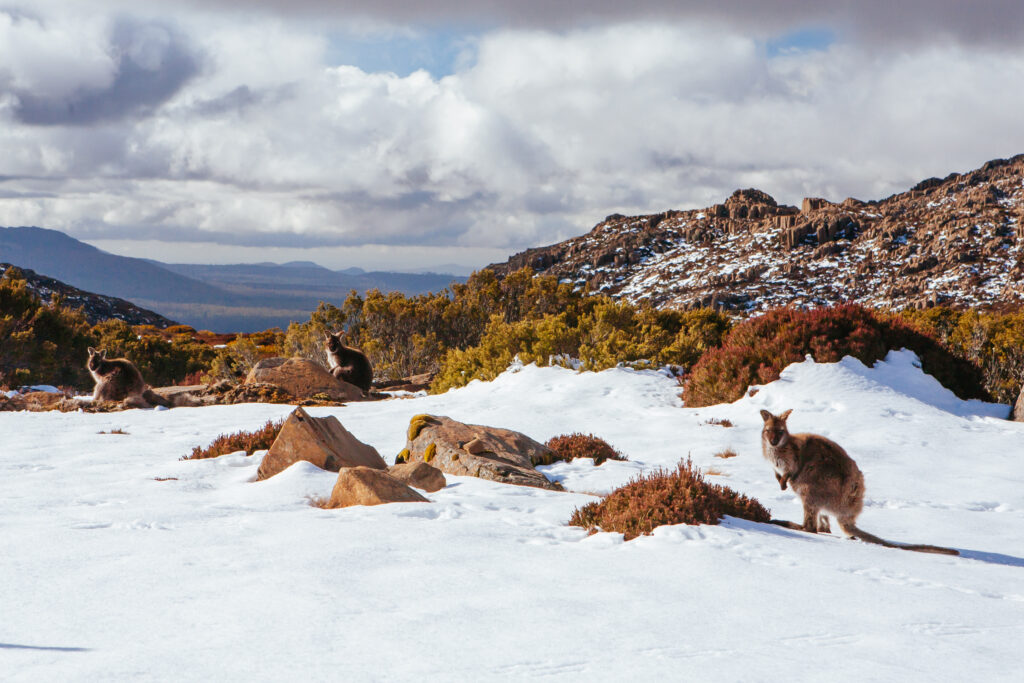Australia is home to incredibly rich and diverse First Nations cultures. Aboriginal and Torres Strait Islander peoples were the first inhabitants of this land, and their traditions, stories, and practices are deeply embedded in the nation’s identity.
Celebrating and supporting these cultures can greatly enrich your time in Australia. Here are five ways you can dive in and engage with First Nations cultures.
1. Learn about the diverse cultures
Educating yourself on First Nations peoples is a great way to learn more about their histories, unique cultures, languages and more. You can discover this kind of information at various Aboriginal cultural centres, through tours and walks in your city, or at many of the country’s major museums and galleries. You might also want to seek out this information yourself.
While any kind of learning is valuable, try to find materials that are created by First Nations peoples themselves; there are lots of fantastic books, movies, newspapers, TV programs and music acts that explore all kinds of topics, offering an introduction to First Nations cultures.
You can also check out this informative map, which details the many languages and tribal or nation groups of First Nations peoples across Australia.
Support First Nations-owned businesses
From food to clothing and everything in between, there are all kinds of First Nations-owned businesses located across Australia. You can search Supply Nation’s database to find verified First Nations businesses, organised by location and category.
If you’re planning to buy Aboriginal art or cultural items like a didgeridoo or clapsticks, make sure to purchase ethically. Ask these important questions before buying:
- Who is the artist?
- Where is the artist from?
- How does the artist get paid?
For more detailed guidance, you can find additional information here.
Donate to organisations
There are several organisations and charities working to make an impact on Australia’s First Nations communities. If you have the means and desire to make a donation, here is a list of Aboriginal and Torres Strait Island charities you can support:
- ANTaR: An independent organisation advocating for the rights and reconciliation of Aboriginal and Torres Strait Islander peoples.
- Indigenous Literacy Foundation (ILF): This national charity works with remote Aboriginal and Torres Strait Islander communities to provide culturally relevant books and support community publishing initiatives.
- GO Foundation: Co-founded by Adam Goodes and Michael O’Loughlin, the GO Foundation provides educational scholarships and opportunities for Indigenous students, supporting their aspirations and helping them achieve their full potential.
- Blaq Aboriginal Corporation: Committed to empowering the Aboriginal and Torres Strait Islander LGBTQ+SB community through innovation, inclusion, understanding and advocacy.
- Aboriginal Women and Children’s Crisis Service: Assist Aboriginal women and their dependent children in escaping domestic and/or family violence.
Travel to significant sites
Across Australia, there are plenty of incredible places to visit that hold significance. Uluru – and the surrounding Uluru–Kata Tjuta National Park – is the most famous, but there are several more worth adding to your next travel itinerary.
Arnhem Land, located in the Northern Territory, is an incredibly beautiful patch of wilderness that is home to the Yolngu people, who are the Traditional Owners of the land. Kakadu National Park, also in the Northern Territory, is the home of the Bininj people in the park’s north and the Mungguy people in the south. As well as being a stunning area to explore, the park’s Warradjan Aboriginal Cultural Centre is a great place to learn about the Traditional Owners of the land.
Other spots to visit include the Blue Mountains (NSW), Wilpena Pound (SA), Kata Tjuta (NT), the Kimberley (WA), and Mossman Gorge (QLD). Many locations have tours led by First Nations cultural tour operators, which are excellent for learning more about the history and importance of each area.
Share your experiences
If you’ve learned new information or had an insightful or enjoyable experience, share it with your friends and family. Encourage them to engage with First Nations cultures, whether here in Australia or from overseas.
If you’re responsible for organising events or activities at your educational institution or through another organisation, you can present your experiences to fellow students and peers. Or, even better, invite a First Nations speaker to an event so they can present their story themselves.
You can also incorporate a Welcome to Country or Acknowledgement of Country at the start of an event you’re organising. This shows respect for the Traditional Owners of the land on which an event is taking place.





